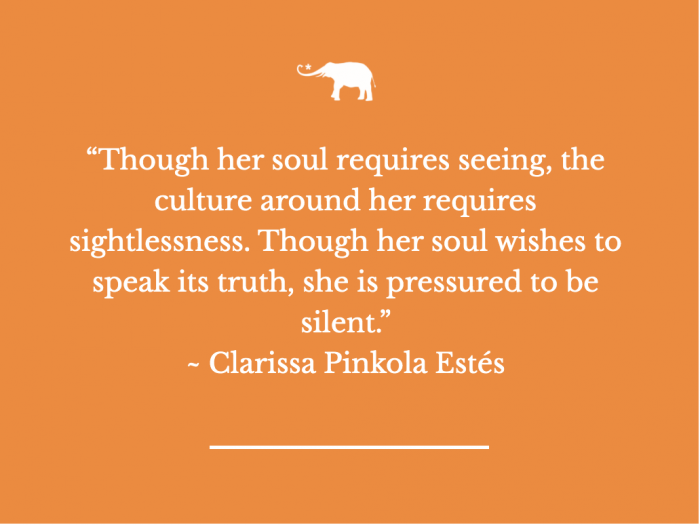~
I’ve always identified with being a “difficult woman.”
The one who’s too complicated, too intense, too needy, and too fiery.
The one who thinks too much, rambling around with ideas here and there, thinking she could change the world, do good, or leave a person better than when she first found them.
How dare she? Who the f*uck does she think she is?
She is the black sheep, or the ugly duckling, as referred to in analytical psychology, of her family, and her culture, among her friends and her tribe.
Who she was didn’t make much of a difference in romantic relationships either. She was still, for the most part, the same person, despite her failed attempts to mask who she is, shrink herself, impersonate someone else’s character, and contort in any way possible to fit in—to receive breadcrumbs of love and admiration.
I believe that there are multiple dimensions that shape us into who we are. In life, we go through different processes of trial and error until we finally arrive at who we’re meant to be, at least that’s what they say. Like coal that gets stammered, crushed, beaten, and pressured before it turns into the most precious piece of diamond.
As the cliché phrase goes, life is a long, long journey. And maybe to become the person we really wish to be, we need to identify with different personas, different characters, and different people who might feel alien to us.
In the same way, maybe to accept the labeling of the “difficult woman,” we need to play it safe by walking in the shoes of the woman who’s all-too-good, all obedient, who plays it safe by the rules, and accept things as they are—socially, culturally, intellectually, emotionally, and especially, sexually.
Until it no longer feels safe, or shall I say, authentic, to play by the rules.
But for the wild, “difficult woman,” we must savour the sharp, dull aches of being other than who we truly are before we establish our own rules to play by, which, needless to say, can be quite difficult in a patriarchal world that loves to shove everyone into a restrictive, confining box to keep them where they’re supposed to be.
In her book, Women Who Run With the Wolves, the analytical psychologist, Clarissa Pinkola Estés, eloquently narrates the journey of this wild, “difficult woman” in one of her quotes:
“Be wild; that is how to clear the river. The river does not flow in polluted, we manage that. The river does not dry up, we block it. If we want to allow it its freedom, we have to allow our ideational lives to be let loose, to stream, letting anything come, initially censoring nothing. That is creative life. It is made up of divine paradox. To create one must be willing to be stone stupid, to sit upon a throne on top of a jackass and spill rubies from one’s mouth. Then the river will flow, then we can stand in the stream of it raining down.”
For the longest time, I cried while asking the question, “What the f*ck is wrong with me?” If I had only questioned less, spoke less, and accepted things as they are, then maybe he/they would have stayed. Maybe they would have been with me by now instead of her, and I would have had the “happily ever after” fairytale that every good woman wishes to have, right?
But is it really the life I want for myself? I can’t really tell. No two women are the same, and each carries her unique, individual, and authentic voice—carved with her own beautiful stories that beg to be told.
All I know is that each time one of those relationships failed, I remember feeling stuck, unfulfilled, and ashamed of asking more from what, then, felt like an “as good as it can get” type of relationship.
Isn’t that what they teach us after all? That “good” is “as good as it can get,” so we might as well settle and stop being too greedy? Well, maybe.
But not for the wild, “difficult woman…”
For her, it is a long, powerful, confusing, and isolating journey that she must walk alone before she is able to carve her own way. For her, as Pinkola Estés so powerfully put it, “It is worse to stay where one does not belong at all than to wander about lost for a while and looking for the psychic and soulful kinship one requires.”
Here’s one poem that beautifully attempts to explain the messy, interwoven complexity of the wild woman’s psyche with its feelings of freedom, intensity, woundedness, isolation, homelessness, unbelonging, intelligence, and finding home within one’s own self.
And it brings me to tears every time I listen to this version.

 Share on bsky
Share on bsky





Read 6 comments and reply